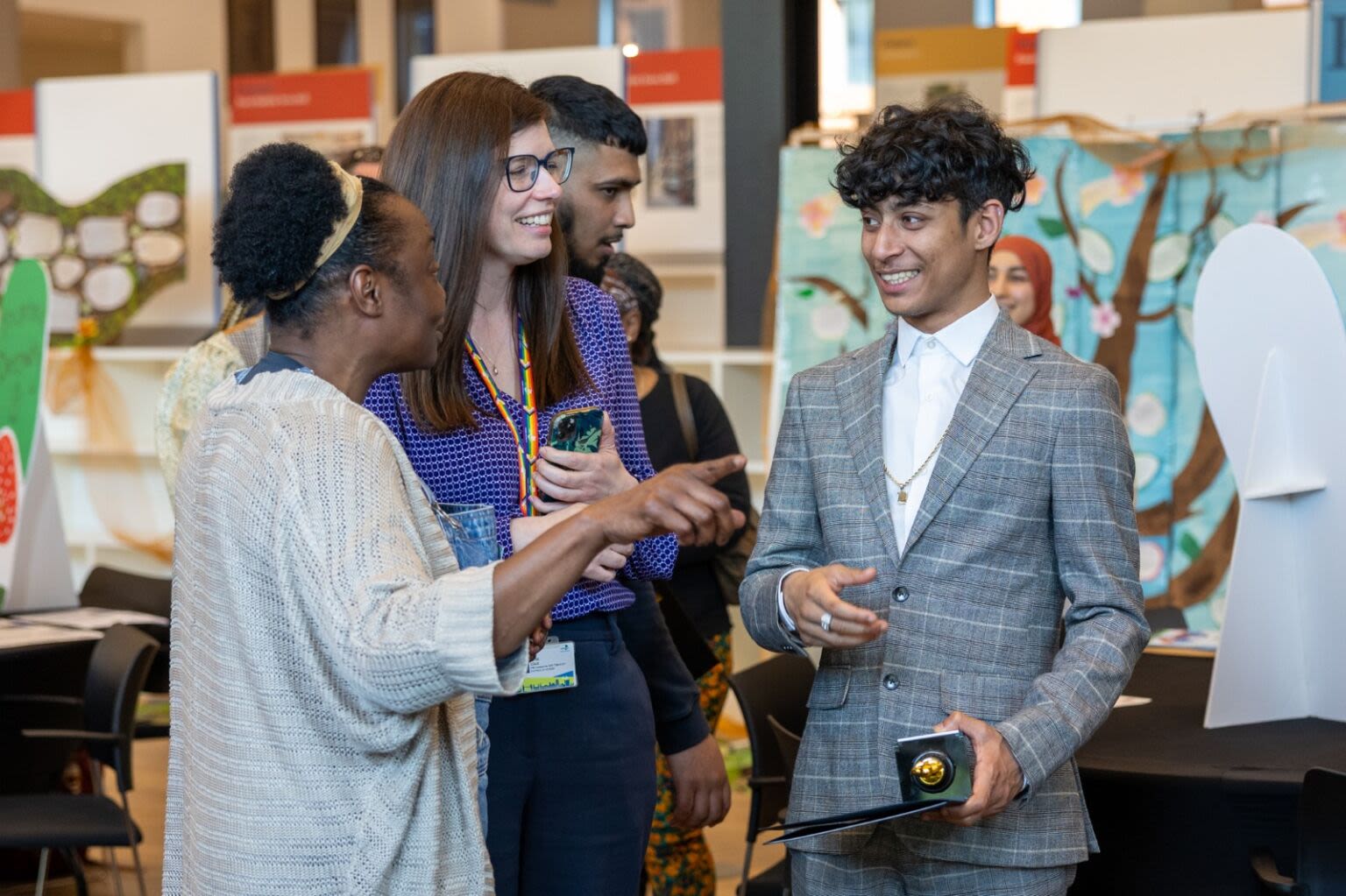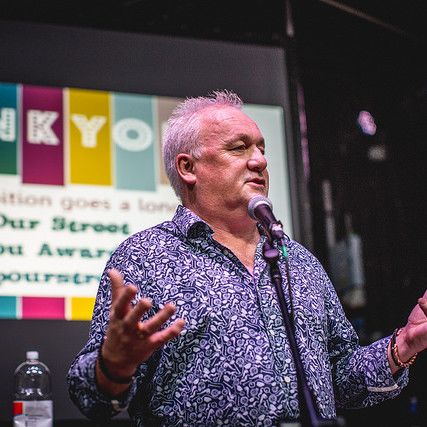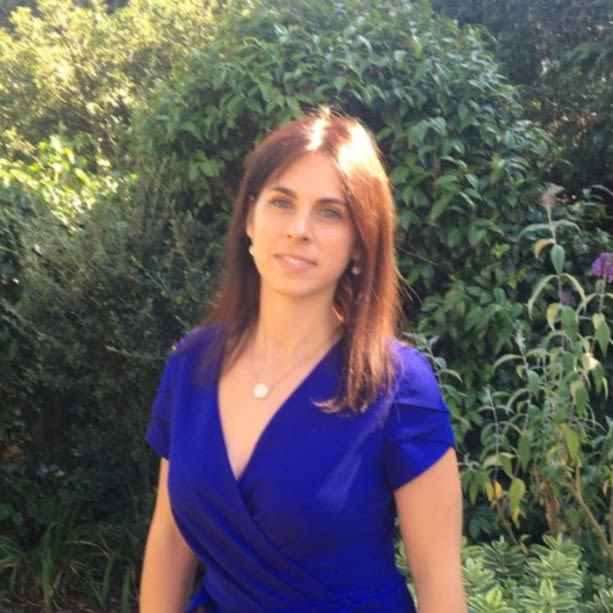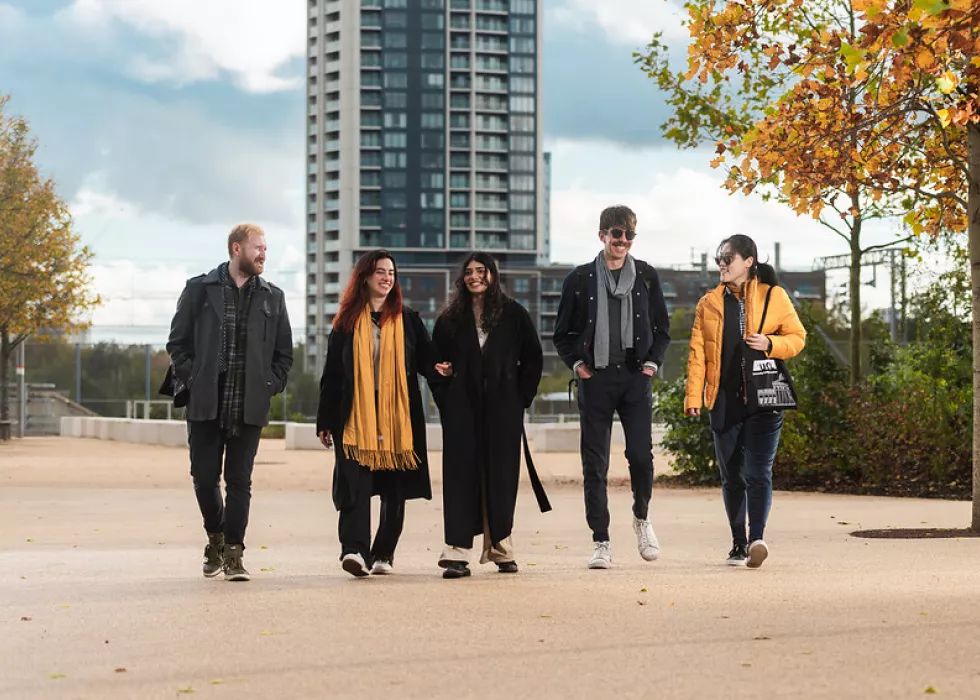Training citizens to shape their own communities and cities
Training citizens to shape policy through research benefits our communities, our institutions and local democracy.
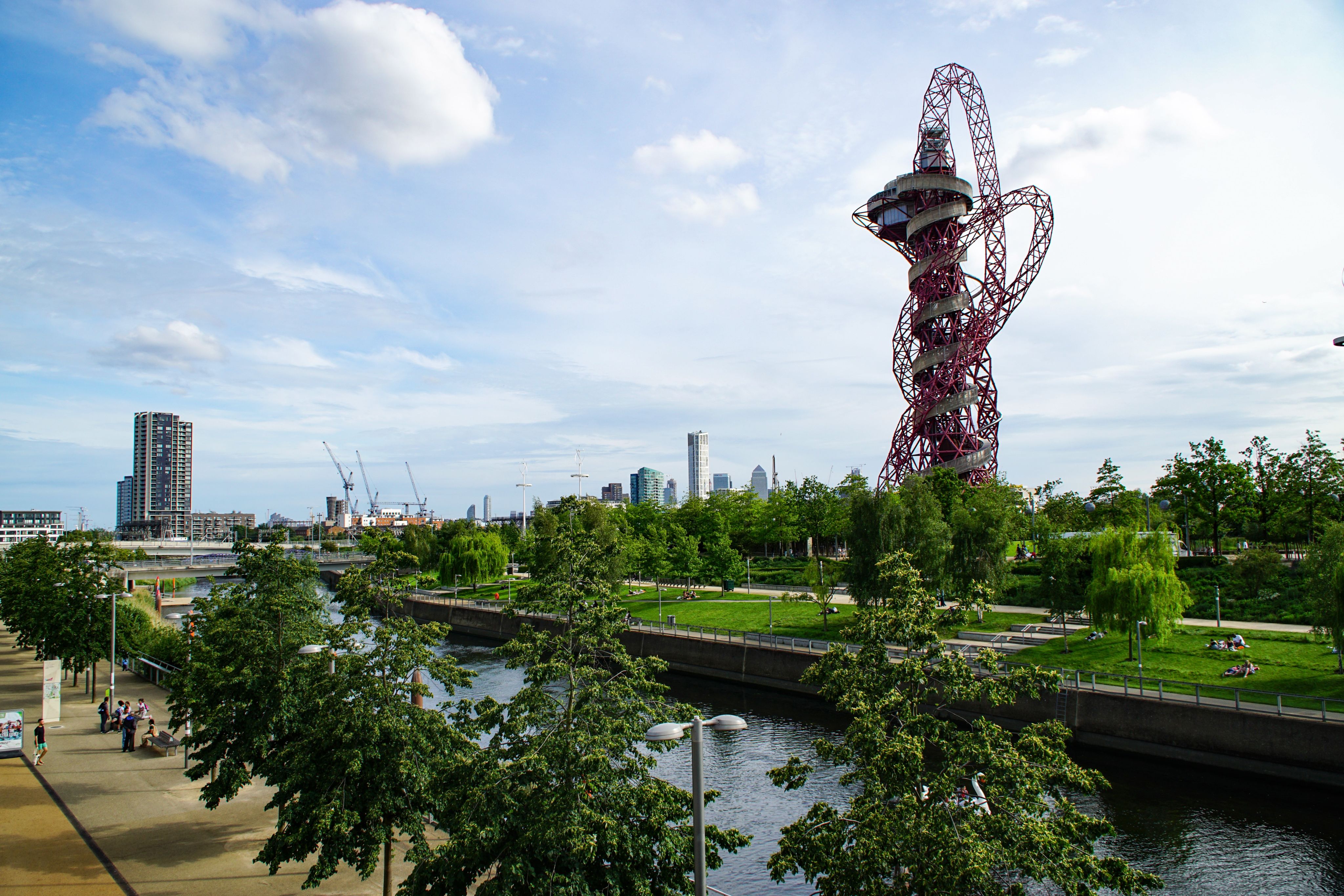
Although the UCL Citizen Science Academy was only established in 2023, the Academy’s lead Joseph Cook explains that citizen science has long been a part of the fabric of University College London.
“We’ve seen members of the public getting involved in monitoring rivers with UCL’s environmental scientists, working with the Astronomy department to analyse images from outer space, or even transcribing the writings of 18th century philosopher Jeremy Bentham, accredited as the 'spiritual father' of UCL, through the Transcribe Bentham project.
"Citizen scientists have been an important part of UCL for a very long time, across a wide range of disciplines.”
In addition to providing paid work for citizen scientists, the Academy (based within the UCL Institute for Global Prosperity) also offers citizen scientists the chance to become certified in competencies such as research ethics, or coding and analysing data.
The new UCL Citizen Science Certificate validates the expertise of the citizen scientists and also provides a level of legitimacy to partner organisations who might be considering involvement in a citizen science project. As a partner, Catherine Fitzgerald, Head of Research and Partnerships at Newham Council, recognises the value that certification brings to the process.
“Sometimes people can be sceptical of community researchers – there can be a perception that they’re not as skilful or well trained as an academic or agency researcher. The certificate helps to debunk some of those biases.
“It helps in terms of getting buy-in within organisations, just to be able to say that these people have accredited training.”
Dominic Murphy, Principal Participation Officer at Camden Council who also works closely with the Academy, can attest to the added kudos provided by the certificate.
“Typically, if there’s a big development happening, the Council brings in a firm of consultants to go and interview residents about their experiences and aspirations. Now, through collaborating with a university, we’ve got this methodology whereby I can credibly suggest that we pay trained residents instead of consultants.”
“Through collaborating with a university, we’ve got this methodology whereby I can credibly suggest that we pay trained residents instead of consultants.”
Dominic Murphy, Principal Participation Officer at Camden Council
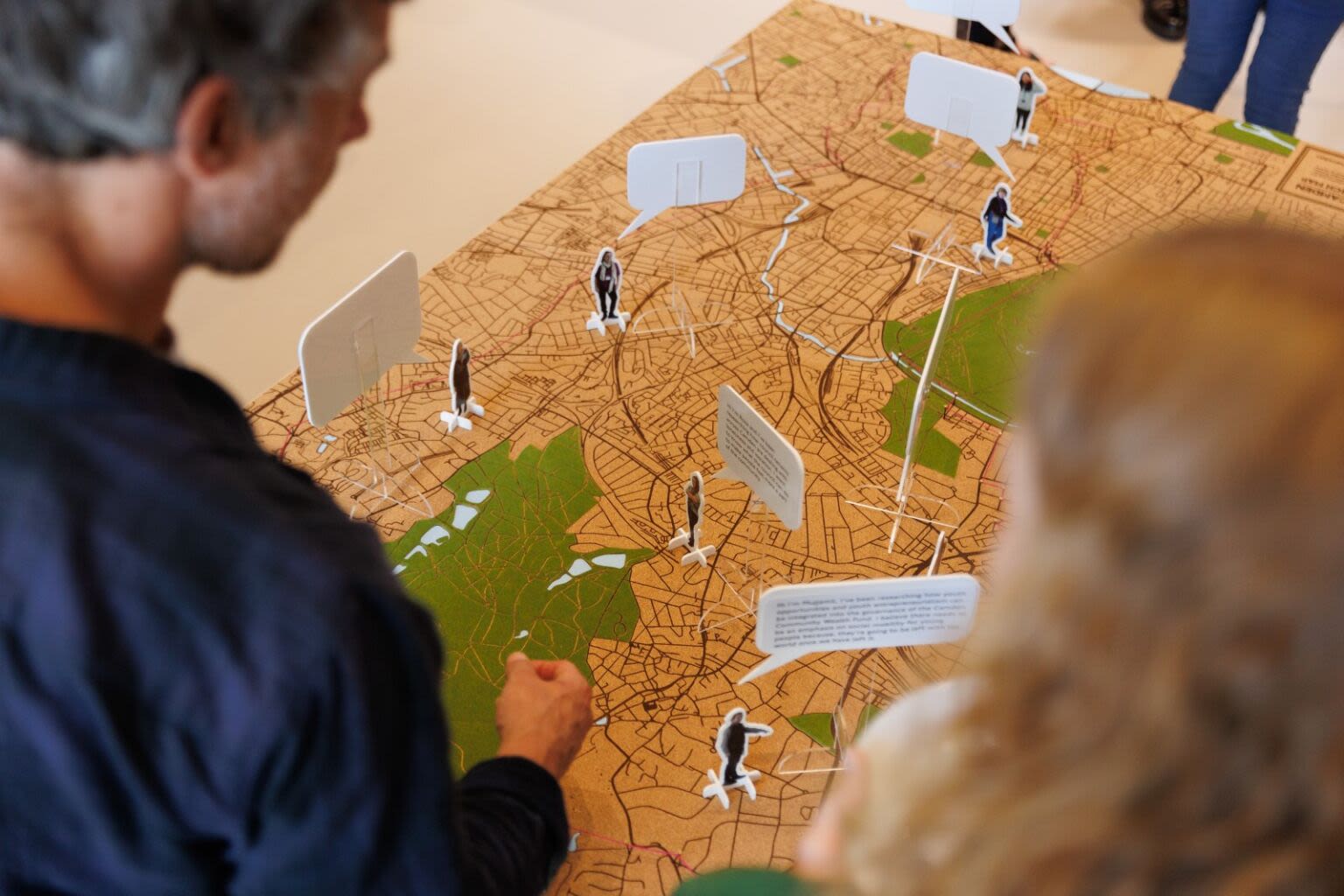
Investing in fairer participation
Each programme is co-designed and tailored to the needs of its participants by a group of stakeholders that often includes people from the partnering council like Catherine and Dom, alongside local community groups and voluntary organisations.
Paying participants allows the Academy to attract a more diverse set of citizen scientists, as Joseph explains.
“If you don’t pay people, then you’re relying on those with the financial freedom and time freedom to be able to take part.
“This way, we can recruit a more diverse range of local people who have potential to be great researchers. People who are passionate and inquisitive about their local community, people who are good listeners and care about the questions they’re asking, people who are invested in their local area.”
This commitment to diversity and inclusion can be seen across a great many of the Academy’s programmes, whether it’s working with asylum seekers in Newham, or coordinating with youth workers to facilitate recruitment of young people in Tower Hamlets.
Saly Begum of Tower Hamlets Council reflects on how their project with care leavers was tailored to harness the untapped creative potential and drive of a group of young people who face multiple barriers to participation.
“Participants in the Citizen Science training effectively demonstrated that, when provided with meaningful opportunities, young people can serve as competent knowledge creators and capable researchers.
“Joseph and I sat down right at the start and worked our way through how the programme might look in practice. We untangled complicated consent issues, adjusted the timings of the sessions to maximise engagement, and we designed it so it would work for the care leavers.”
Tower Hamlets-based citizen scientist Keyaan Ahmed explaining his research to Council staff during a showcase event.
Tower Hamlets-based citizen scientist Keyaan Ahmed explaining his research to Council staff during a showcase event.
Reimagining the processes of local democracy
The successes these different councils have experienced with citizen science, now amplified by the UCL Citizen Science Academy, are almost too numerous to count. After six years developing citizen science at Camden, Dom has seen community research become embedded across a range of council activities.
He tells us, “We’re experimenting with something called ‘Citizen Science-in-Residence’. Rather than training citizens for a specific piece of research, we’ve asked them to join our team for a year. We give them a broad area to explore, and then they develop their own research question.
“They participate in all our team meetings, and the benefits are huge. We’re just in the process of taking on a further 16 citizen scientists to help us with our planning projects.”
Newham Council, UCL and Compost London have just secured one million pounds to develop a new Newham Community Research Network, collaborating with a network of community organisations. Catherine Fitzgerald explains what this will look like in practice.
“We’re helping different marginalised groups to identify the research that’s most important to their community, and then recruit from within their communities for the next wave of researchers.
“At the Council we’re also recruiting citizen scientists trained by the Academy for six-month positions within specific council teams, to work on strategy, policy and certain service areas.
“It’s enabling us to hardwire and embed citizen science into local policy making and service design within the council.”
Citizen scientists from East London and Camden were front and centre at the recent London Design Biennale, presenting their work and engaging with attendees at the IGP’s ‘People Powered Prosperity’ exhibition.
Joseph reflects on how the exhibition allowed the researchers to spotlight the groundbreaking work of citizens leading change across the world.
“It was a great way to increase public awareness of the benefits of citizen science, and to communicate on a fairly grand stage that this is science, too. Citizen science isn’t just a friendly engagement project. It’s also about gathering important, nuanced data.”
“UCL is a massive institution full of experts in almost everything, people whose passion is to train people. It’s a great resource for local authorities to connect with.”
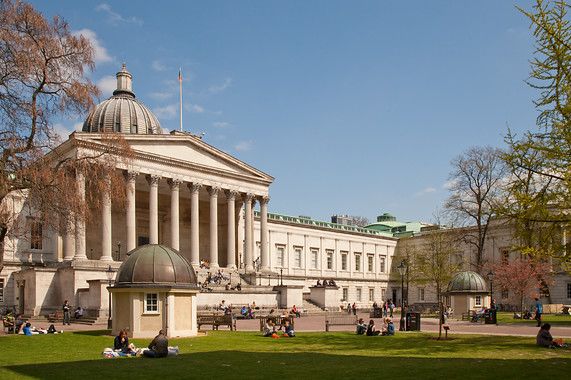
Breaking down barriers
The Academy’s work is helping local people and organisations connect more with UCL.
Saly says, “It’s enhancing UCL’s reputation as a socially responsible institution. It helps the university access different funding streams, too, through these partnerships.”
Catherine points out the benefits that citizen scientists can bring to universities like UCL and their efforts to promote diversity and widen participation.
“Within academia, there’s a deficit of researchers from more diverse backgrounds, so these projects help us address that inequity.”
Joseph concurs, saying, “Part of what we’re trying to achieve is bringing our citizen science alumni into other parts of UCL – connecting them with students, or giving presentations to different departments, increasing the diversity of voices within UCL.
“We really benefit from combining forces with the councils, too. We’ve got the expertise in training, but we don’t have their expertise in that really granular, street-by-street engagement work with communities. We can also use that expertise and experience to add depth to the curriculum on programmes like the IGP’s Global Prosperity MSc.
“These projects where we can work with councils to train local people are, for me, what being a civic university is all about.
“UCL is a massive institution full of experts in almost everything, people whose passion is to train people. It’s a great resource for local authorities to connect with.”
The Bartlett in London: celebrating 200 years of UCL
This story is part of the Bartlett in London series from the UCL Bartlett Faculty of the Built Environment.
In celebration of UCL's bicentenary in 2026, this series of stories explores our impact on the built environment of London – from creating healthier and more sustainable living, to supporting local communities and documenting London’s rich history.
Produced with support from the UCL Innovation and Enterprise Faculties Innovation Fund.
Related stories
Fairer ways to feed the UK
New citizen science and community projects show how communal dining facilities could help reshape society
Learn more about global prosperity
Our vision at the Institute for Global Prosperity is to build a prosperous, sustainable global future underpinned by fairness and social justice and a long-term vision of humanity’s place in the world. If this challenge intellectually excites you, studying with us could help kick-start your career as a future change maker.
Story produced by All Things Words
© UCL The Bartlett 2025


